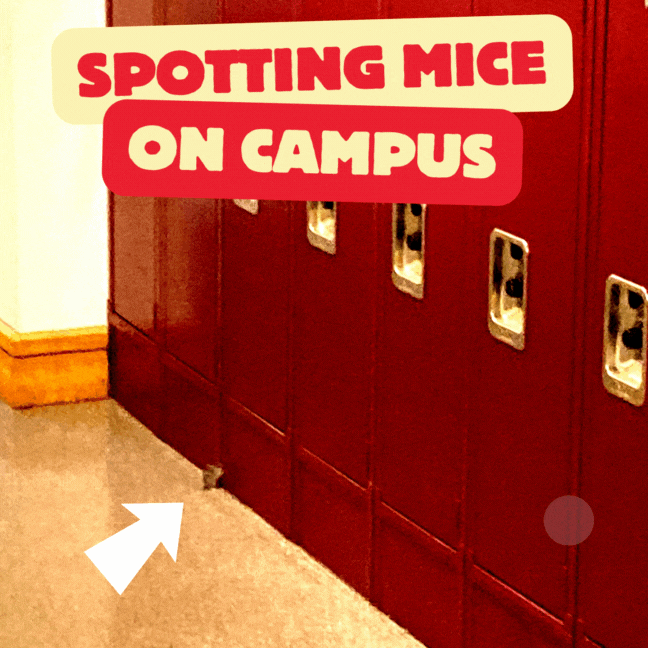As Boston City Council voted in February to create an Office of Pest Control to curb the growing rodent problem, here in nearby Chestnut Hill, the School is also continuing its efforts to mitigate mice on campus.
“We have a program in place with a company called Waltham Pest Control and that guy comes weekly and puts glue traps down, and some snap traps,” Manager of Operations and Facilities Tom Bray said. “We always have the issue every year; it’s just a little worse this year.”
Chief Financial Officer Julian Hickman, who oversees facilities, echoed Bray, adding that it is important to properly store food.
“What [the mice] are looking for is food,” Hickman said. “If you you have food just out and snacks out, that is what they’re looking for,” Hickman said.
“Anytime we’re leaving food around and not cleaning up, that can attract non-humans to that,” Neudel said.
We need to find a way to live together, but the danger of having mice at school—or anywhere, for that matter—is the possible transmission of viruses through their feces, urine, saliva, or bites.
— School Nurse Beth Escobar
Even with precautions, French teacher Diana Scharrer has found mice droppings in her area.
“I have noticed the existence of mice in my office,” Scharrer said. “Occasionally, when I arrive in the morning, I have to clean up mouse feces from the top of my desk and then disinfect the top of my desk with a cleaning cloth. The mice have been going crazy since the pandemic. I have not ever seen a mouse, and for that I am grateful. We were told, ‘don’t keep food in your office,’ and we don’t have food in our office.”
School Nurse Beth Escobar said that despite our best efforts to keep them out, mice are a part of nature.
“First of all, there are mice everywhere because they live on this planet as we do,” Escobar said. “We need to find a way to live together, but the danger of having mice at school—or anywhere, for that matter—is the possible transmission of viruses through their feces, urine, saliva, or bites.”
Recently, history teacher David Cutler also had to contend with mice in his nearby Newton home.
“Like here at Brimmer, my house is very clean,” Cutler said. “Regardless, with the wacky weather we’ve had this winter and spring, my pest control company says that the mice simply want somewhere warm and cozy to live. They’ve had a huge uptick in business. Unfortunately, it’s not as simple as getting rid of ants; it can takes some time to get mice issues under control. The School is doing everything in its power to mitigate the situation, but everyone must help out by not leaving food around.”



